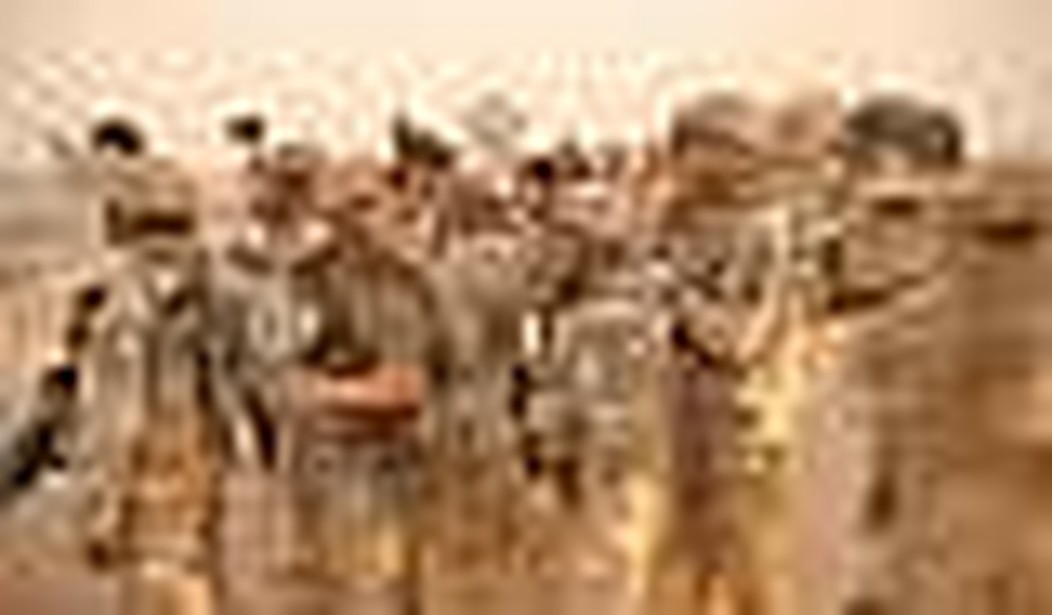With the end of the Bush presidency, it is worth reflecting on the most important initiative he undertook — the deposing of Saddam Hussein and the reconstruction of Iraq. While the success of the surge has led many people to believe that President Bush’s policies have been vindicated, the truth appears to be more complicated: the surge has helped to avoid a disaster, but its results have been no substitute for what a consistently competent Iraq policy would have accomplished.
There have been at least three possible results in Iraq. The first was disaster. Had the surge not been tried or not succeeded, and the United State withdrawn its troops, it is likely that a horrible civil war would have occurred, which might had led to the establishment of an Islamic state that was friendly to Iran. The United States would have invaded a foreign country and brought about terrible results. It is hard to imagine worse consequences from a moral perspective or with regard to American interests. Yet, back in 2007, it was a real possibility.
The second possible result is the one that has occurred. The surge was successful and disaster was avoided. There appears to be a real possibility that Iraq will mature into some kind of democracy. The democracy will not be western style, and it certainly will not be perfect. But it would be better than any other government in the Arab world, and it might serve as an important model. One might then regard the Iraqi liberation, given its large costs, as a small success. Of course, there are no assurances that Iraq will not turn into something less desirable. But if events remain on course, one can realistically hope for long term benefits that exceed the costs.
The third possible result is largely forgotten these days, but early on it was possible that the liberation of Iraq would help to transform the region. The United States had just toppled the Taliban in Afghanistan with minimal effort and then quickly ousted Saddam. Tyrants in the region were scared and started to alter their behavior. Most importantly, Libya was concerned enough to disclose and abandon its nuclear weapons program. The Libyan revelations informed the United States about a much more advanced nuclear weapons program than they had ever suspected. But the benefits from invading Iraq extended far beyond Libya. Syria was pressured to withdraw many of its forces from Lebanon, and it seemed like the resulting Cedar Revolution might lead to greater freedom.
Even Iran was pressured to allow additional nuclear inspections that helped reveal the extent of its nuclear program. Moreover, Iran seemed concerned enough to announce that they were cutting back on their nuclear enrichment efforts. While the announcement was probably more cosmetic than real, it still showed concern on Iran’s part. These discoveries about Iran and Libya also helped to reveal the A.Q. Khan nuclear distribution network. In addition, Saudi Arabia and Egypt were led to expand elections, albeit in modest ways. Although it is contested as to how much these events were influenced by America’s invasions, there seems little doubt that American military actions played a significant role.
These developments, however, were soon stalled and to a certain extent reversed once it became clear that the United States was bogged down in Iraq. With the insurgency leading to increased American casualties and costs, the war soon became unpopular domestically, and it became clear that the United States was no longer a threat to invade any other countries in the region. Its influence waned, and its enemies, especially Iran, have grown bolder.
But this setback need not have occurred. If the United States had not wasted the four years prior to the surge, committing one blunder after another, the insurgency need not have grown so strong. If the United States had pursued the reconstruction of Iraq competently, with the proper number of troops and an insistence that the new government structure also protect the interests of the Sunnis, the human and economic costs of the war might have been much smaller and its popularity much greater. The United States might then have been a credible threat to other countries in the region, and we might now be witnessing not merely the establishment of a nascent democracy in Iraq, but momentum towards freer governments throughout the region.
We can all be happy with the success of the surge and the possible benefits in the years to come. At this point, Iraq stands as a success for the Bush administration. But let’s not deceive ourselves into believing that the surge made up for the prior missteps. Had the Bush administration competently pursued the Iraqi reconstruction from the beginning, we might now be seeing the beneficial results of a genuinely transformative policy.









Join the conversation as a VIP Member